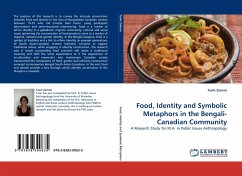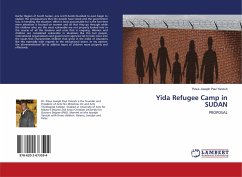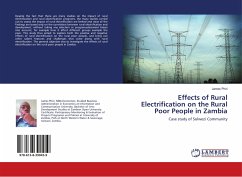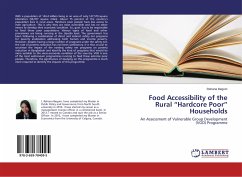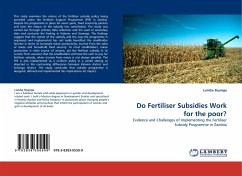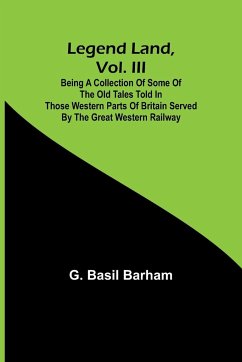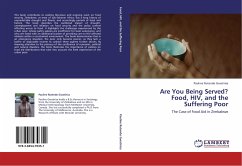
Are You Being Served? Food, HIV, and the Suffering Poor
The Case of Food Aid in Zimbabwe
Versandkostenfrei!
Versandfertig in 6-10 Tagen
52,99 €
inkl. MwSt.

PAYBACK Punkte
26 °P sammeln!
This book contributes to existing literature and ongoing work on food security. Zimbabwe, as most of sub-Saharan Africa, has a long history of unpredictable drought and floods, and accordingly periods of feast and famine. The book describes the combined impact of drought, unemployment and inflation on food security and the policy context affecting access to food. It highlights the challenges experienced by the urban poor, whose paltry salaries are insufficient for basic sustenance, and who are faced with an additional burden of providing care to HIV affected relatives within a constrained envi...
This book contributes to existing literature and ongoing work on food security. Zimbabwe, as most of sub-Saharan Africa, has a long history of unpredictable drought and floods, and accordingly periods of feast and famine. The book describes the combined impact of drought, unemployment and inflation on food security and the policy context affecting access to food. It highlights the challenges experienced by the urban poor, whose paltry salaries are insufficient for basic sustenance, and who are faced with an additional burden of providing care to HIV affected relatives within a constrained environment. The book demonstrates that in an emergency situation, the poor only become poorer, as they lack a buffer or disposable income to cushion them against further shocks. By drawing attention to the potency of the confluence of economic, political and natural disasters, the book illustrates the importance of policies on food aid distributions that take into account the lived experiences of the urban poor.



